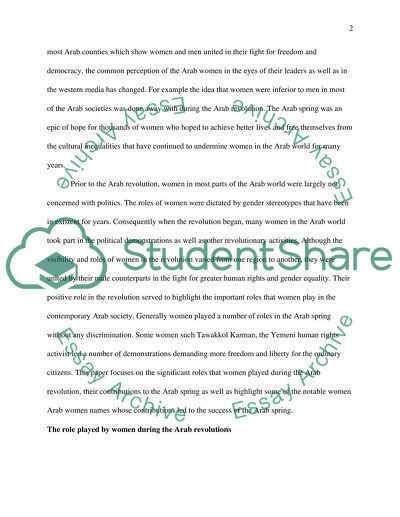Cite this document
(“The role of women in the Arab Revolutions Essay”, n.d.)
Retrieved from https://studentshare.org/sociology/1397734-the-role-of-women-in-the-arab-revolutions
Retrieved from https://studentshare.org/sociology/1397734-the-role-of-women-in-the-arab-revolutions
(The Role of Women in the Arab Revolutions Essay)
https://studentshare.org/sociology/1397734-the-role-of-women-in-the-arab-revolutions.
https://studentshare.org/sociology/1397734-the-role-of-women-in-the-arab-revolutions.
“The Role of Women in the Arab Revolutions Essay”, n.d. https://studentshare.org/sociology/1397734-the-role-of-women-in-the-arab-revolutions.


